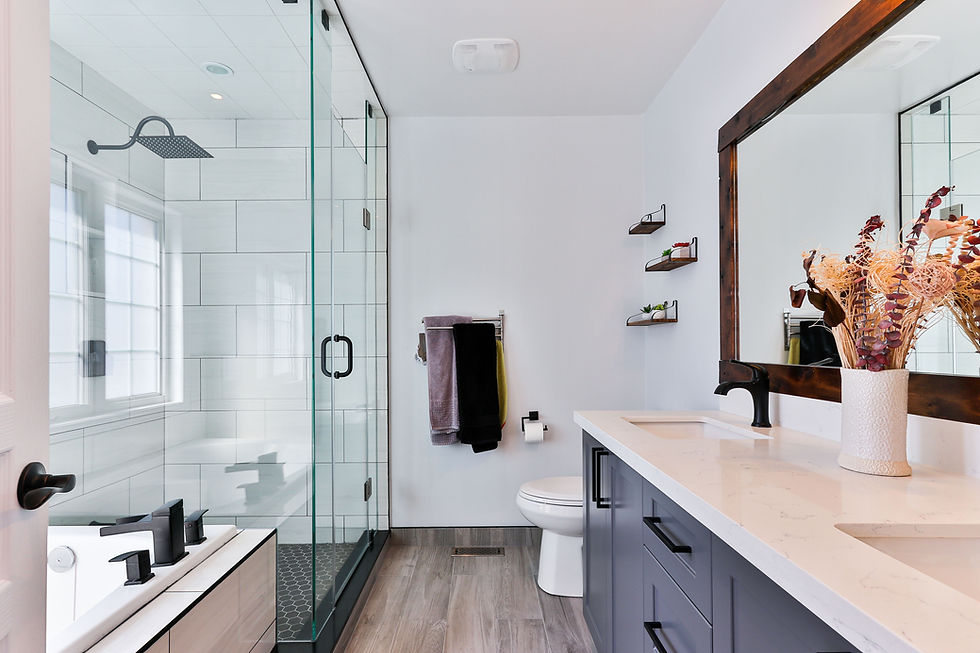There are many things to consider before working with an architecture agency firm. Find out all about them in this blog post!
"Working with an architect who is experienced in your type of project will put you at ease."
First of all, think about your project and what you want to achieve. What style do you like? What needs to be done in particular? How much can you afford to spend? Once you have a good idea of what you want, it's time to start looking for companies. Ask friends and family for recommendations or check online reviews. Once you've narrowed down your list, meet with the companies and ask them questions about their experience, their process and how they approach your project. It's important that you feel comfortable with your architect.
In this article, you'll find out:
how to choose one
who understands what you want
and who is prepared to work closely
with you every step of the way!
Discover the formulas in interior and event decoration:
1. Architectural agency: how long have they been in business and do they have online reviews from previous clients?
Do they have a portfolio of work that will give you confidence in their ability to tackle your project?
Will they be the only ones working on my project, or will they come and go during construction? Do they have experience in the type of project you want to carry out?
The working relationship between you and your architect is very important. You need to be able to rely on him or her to faithfully interpret your vision into a project that is both functional and beautiful. Building plans are complex documents, so make sure they are familiar with the process before you start working on the project.
Watch the episode ‘Maison Ditaba decorates a living room and an entrance hall’ :
2. Architecture agency a: how much planning is needed before construction begins?
What is the cost of making changes to the initial plan after it has been drawn up? During the planning process, you will probably come up with a few ideas that don't quite fit into your overall project. Think about how your architect will deal with these situations before finalising your contract.
Read the testimonials of those who have placed their trust in us:
3. Architecture agency: will it provide a timetable and how will we communicate?
Make sure you and your architect discuss deadlines carefully before you start your project. Make sure they are available to answer questions throughout the process, especially during construction. Above all, don't wait until the last minute to tell them about any concerns or changes, so they can help you avoid delays.
4. Architecture agency: will there be a contract and how can we keep costs under control?
There should always be a formal agreement between you and the architect detailing the scope of your project, payment expectations and timescales. This is essential to build trust and manage cost overruns.
Ask friends and family to recommend architects who have worked with them. Finally, ask the architectural firm for a list of clients from whom you can ask for references.
An architect should be able to help you identify the city's requirements for your project from the outset. Depending on the scope of your project, these may include zoning, deed restrictions or historic preservation guidelines. Some zones may also have specific requirements for certain types of construction. These may include flood zone information, setbacks and property line changes.
5. How much do their services cost, and what is included in that price (e.g. design plans, permits, construction management, etc.)?
Make sure you understand what is covered by their standard fees. Make sure the fees are reasonable for the scale of your project.
Do they have sample plans or a portfolio of completed projects? Be sure to look at examples of work completed on similar projects, to see if the company's approach matches the way it was designed for you.
Licensing requirements vary from state to state, so check with your state's architectural board. If the architect is not licensed, but an intern working for them is, make sure they are honest about this from the start.
6. Are there any additional costs that might arise along the way (e.g. change orders)?
For a basic project, there should be no additional costs. Any such costs should always be put in writing and agreed before work begins.
Working with an experienced architect can help you avoid problems along the way. If he or she has already worked on projects similar to yours, this will give you an idea of the architect's experience and ability to manage the project.
7. Are they registered with the Better Business Bureau?
If you are having trouble finding references, don't hesitate to ask other architects for references. Ask them how they were paid and whether their project was completed on time. Even if the architect has a desk full of signed plans, that doesn't mean he or she is actually capable of producing them. If the plans look like they were drawn by a schoolboy, it's best to move on.
8. Do you want an architect who is available to answer questions throughout the process?
Your architect should be able to speak your language and explain why certain decisions are made during the design process. They should also be available to answer questions and give you honest and realistic feedback.
If the firm's staff are all young and inexperienced, this can be a red flag. Don't forget to ask whether the architect will eventually have to approve design changes before they are carried out. If so, who is responsible for these costs?
9. Has it received any design awards or published any works relating to your type of project (e.g. residential architecture)?
An architect's portfolio is a pretty good indicator of the quality of his work. If they've won awards or been published, it usually means they're bringing something new to the industry.
Do other professionals in your sector (architects, contractors and designers) give them positive feedback?
Establishing links with other professionals is one of the most important aspects of your architect's work. If they don't have a good reputation in the industry, they probably won't be able to provide you with what you need.
10. Do they offer incentives for completing projects within a specific timeframe?
For example, some architects offer reduced fees if the project is completed within a certain timeframe.
What sets them apart can tell you a lot about their experience and approach to design.
In general, look for firms that have been in business for at least five years and have worked on the following projects:
- Residential (new builds and renovations)
- Commercial, institutional or industrial projects (offices, schools, etc.)
- Public buildings such as libraries or museums
Working with an architect who has experience in your type of project will put you at ease.
See you soon ✨ !
Join the communities on :
Let's build together, the expression of your well-being :



















Commentaires